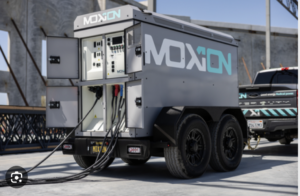Tesla Motors says that if the battery pack fails in your sexy Model S electric sedan for any reason except deliberate abuse, you can have a replacement, free, for eight years.
That warranty length matches mainstream automaker’s pledges about their electric-car batteries. But Tesla goes a bit further.
The Model S’ bigger 85 kwh battery pack is warranted for eight years or unlimited mileage. The smaller, 60 kilowatt-hour pack, is eight years or 125,000 miles, whichever comes first. The usual is eight years/100,000 miles.
“We don’t think anybody could put enough miles on to kill the (85 kwh) pack. That could turn out to be wrong, but we have half-a-million miles on one in the lab,” says Tesla chief Elon Musk. “Even the 60 kwh customers will be able to take it well over 200,000 miles.”
Keep in mind that Musk founded SpaceX, a private rocketship company that considers space its back yard and has sent two resupply missions to the International Space Station. In that context, 100,000 miles, more or less, or so might not seem far at all.
SpaceX, by the way, just sent a rocket called Grasshopper some 800 feet up, hovered it there briefly, then returned it to Earth. A step toward a reusable rocket.
Tesla recently reported its first quarterly profit, and sold more cars than it anticipated.
The Model S is the only Tesla. The Lotus-based, six-figure Roadster sports car that was the first Tesla no longer can be sold here. As a small maker, Tesla was temporarily exempt from some safety testing, but that exemption has expired.
Why not redesign the sports car to meet U.S. safety regulations?
Musk says he’d rather pursue “a strategy that ultimately gets us to a compelling mass-market (electric) car.” He has lower-price models under development.
Besides, he says, “I do not think there is a shortage of sports cars for rich people.”


 Moxion and NUE
Moxion and NUE